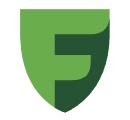At 19, a Kazakhstani Entrepreneur Automated Pre-Shift Medical Checkups and Helped Factories Save Millions of Tenge
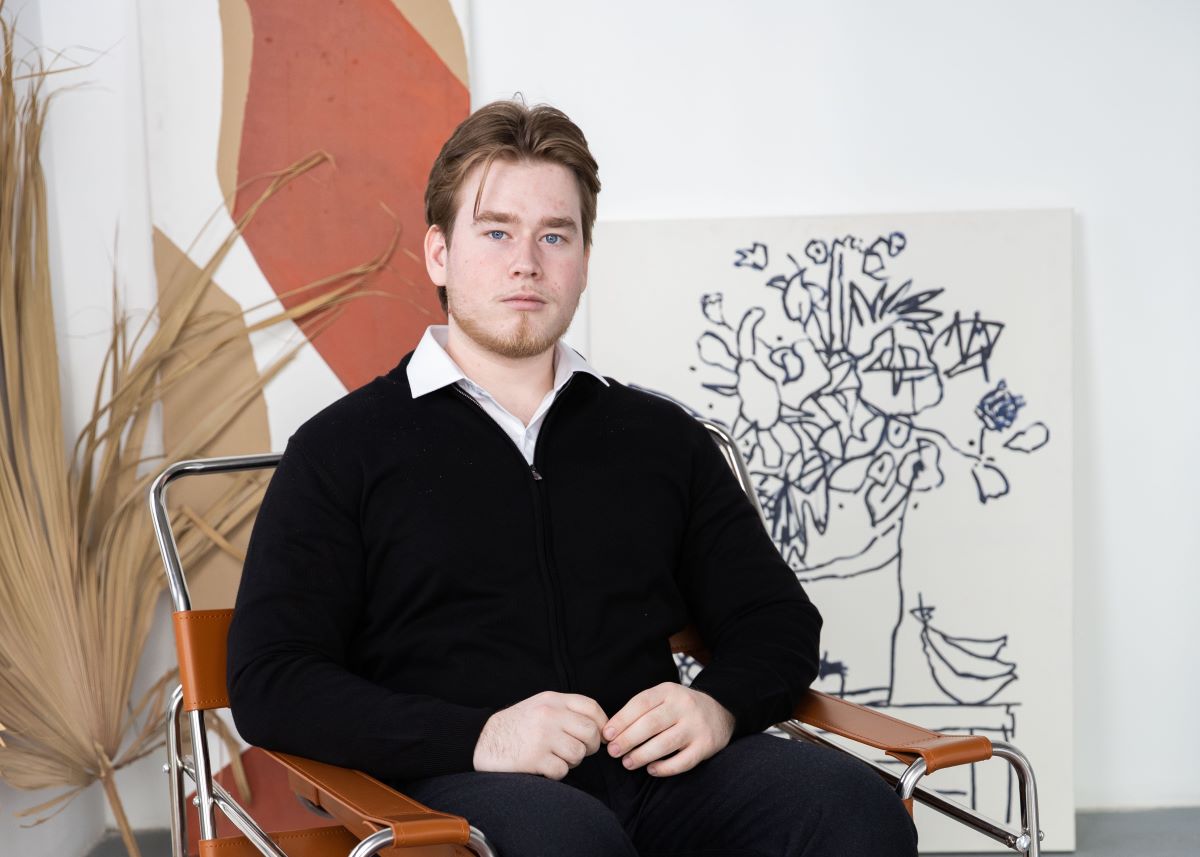
Danil Mukhalev is 19 years old. Back in school, he was passionate about robotics, and for one competition, he designed and built a «robo-doctor». The project received high marks and eventually evolved into a startup called AMS. Today, his team from Aktau produces compact tablets that help carry out pre-shift checkups for workers and construction crews. The devices measure body temperature and test for alcohol.
For the joint project by Digital Business and Astana Hub, «100 Startup Stories of Central Asia», AMS founder and CEO Danil Mukhalev shared how a school robotics project turned into a reliable product, how their devices help institutions save money, and why he’s now planning to enter the French market.
«The market isn’t ready for a robot physician yet because the idea is still too big for most to grasp»
— How did you come up with the idea for your startup?
— It all started with my passion for robotics back when I studied at the Nazarbayev Intellectual School in Aktau. Since I was 13, I had been building simple devices and taking part in science project competitions. At 16, our team built our first medical robot. It could measure temperature, heart rate, and blood alcohol levels. We entered it into competitions, won some prizes, but didn’t really think about any practical application at the time.
The turning point came when we took part in the Samsung Solve for Tomorrow school project competition. We made it to the finals, took fourth place, and won a small cash prize. That’s when we decided to invest the money into developing what would become AMS — but we also realized we needed to rethink the product. That meant letting go of the robot idea.
— Why did you decide to move away from the robot idea?
— We realized that the market just isn’t ready for a solution like that. It’s a big and ambitious idea, but it also requires expertise that we don’t have yet. In theory, a robot could handle medical checkups in places with a high flow of people, such as factories and industrial plants.
When we showed the robot to potential clients, their reaction was straightforward: «We won’t install this. We need something more compact». So we kept the robot as a kind of eye-catching promo image but gradually shifted our focus to wall-mounted tablets for quick checkups.
For many institutions, it’s a legal requirement that every worker passes a health check before starting a shift. Normally, this is done by a nurse. Our tablet automates the process: sensitive sensors detect whether a worker has been drinking or has a fever. Only if the employee is healthy and sober are they allowed to enter the plant.
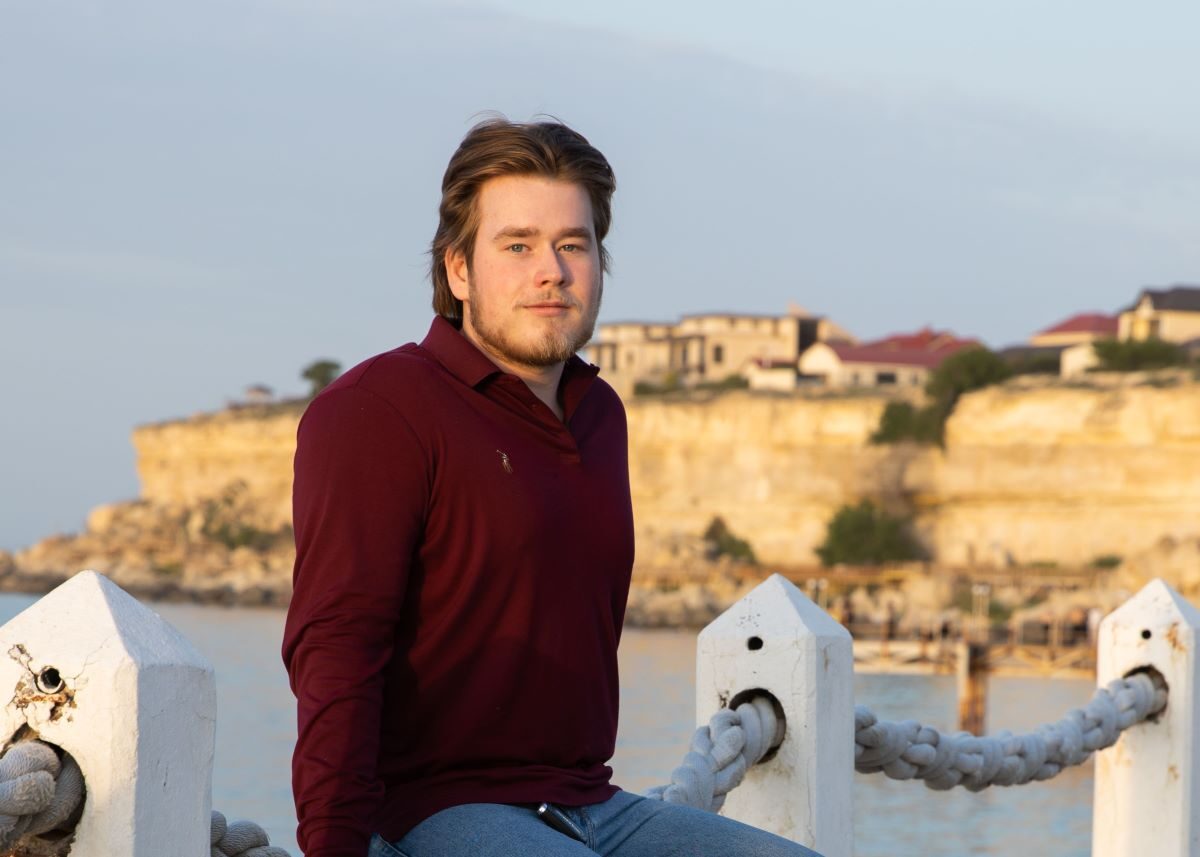
— What makes your solution different from the others out there?
— There’s already a system on the market called Med365. It’s widely used in the government sector and by large corporations. But it’s expensive, and only big companies can afford it. Medium-sized businesses face the same pre-shift check requirements, yet they don’t have access to affordable solutions. That’s where we come in. Another key advantage is our high level of personalization. Since we build everything ourselves, we can adapt the tablet to the specific needs of each client. Our production is based in Aktau, where our developers are located and where most of our clients are.
— How big is the AMS team now?
— There are 10 of us in the team now. We have three co-founders: myself, Kamila Kuatova, our CMO, and Ulan Aitbai, our CTO. The rest are developers and a designer. At the very beginning, we built everything ourselves — I handled hardware and accounting, Ulan wrote the code, and Kamila took care of marketing and presentations. Once we made our first sales, we were able to start hiring people.
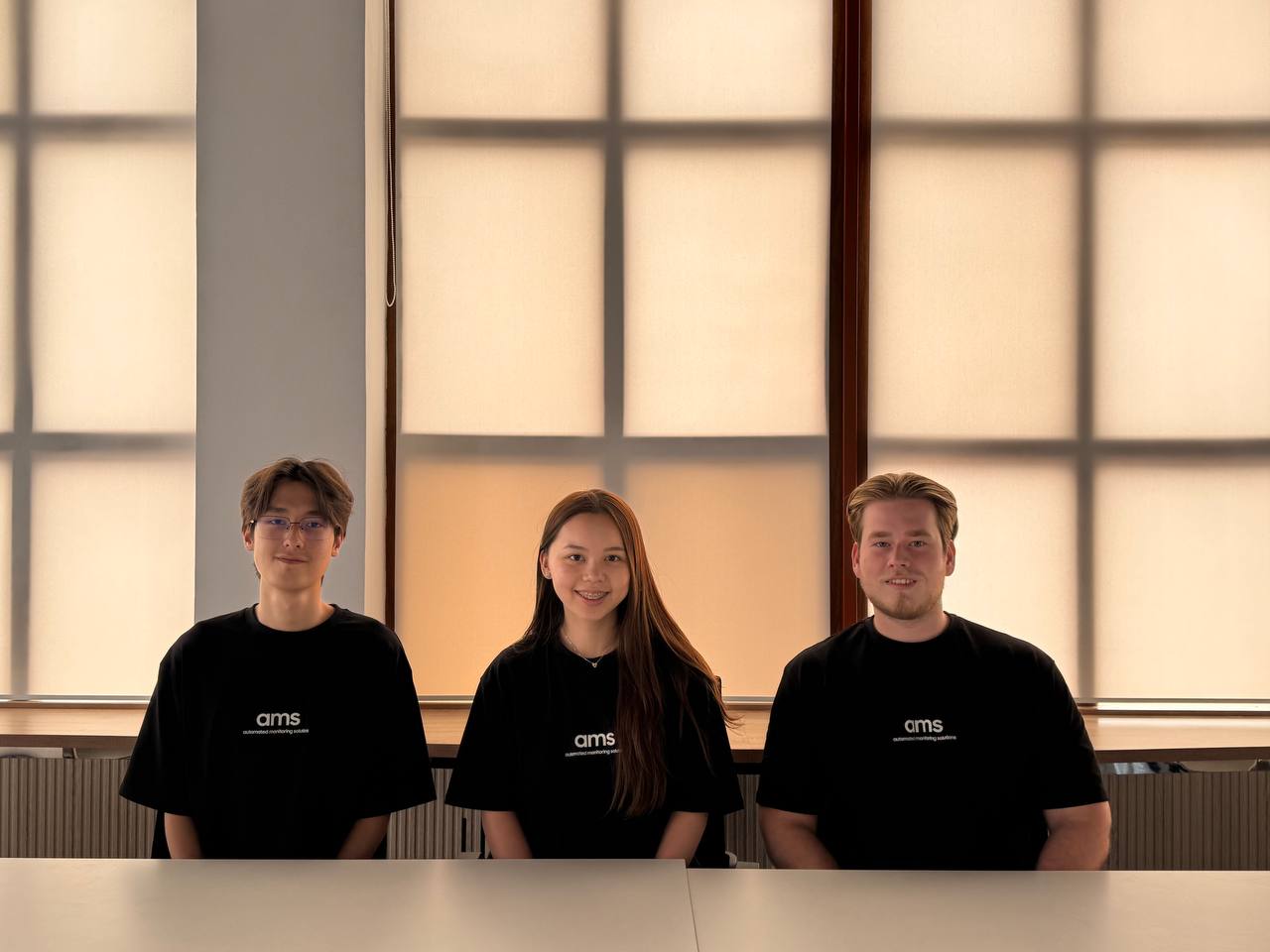
«Some workers tried to cheat the system by using their colleagues’ photos to pass the checkup»
— How does your device work?
— It’s a compact box mounted on the wall and connected to a lock or turnstile. On the side, there’s a module with a breathing tube, and at the bottom, you’ll find a heart rate sensor and an infrared camera.
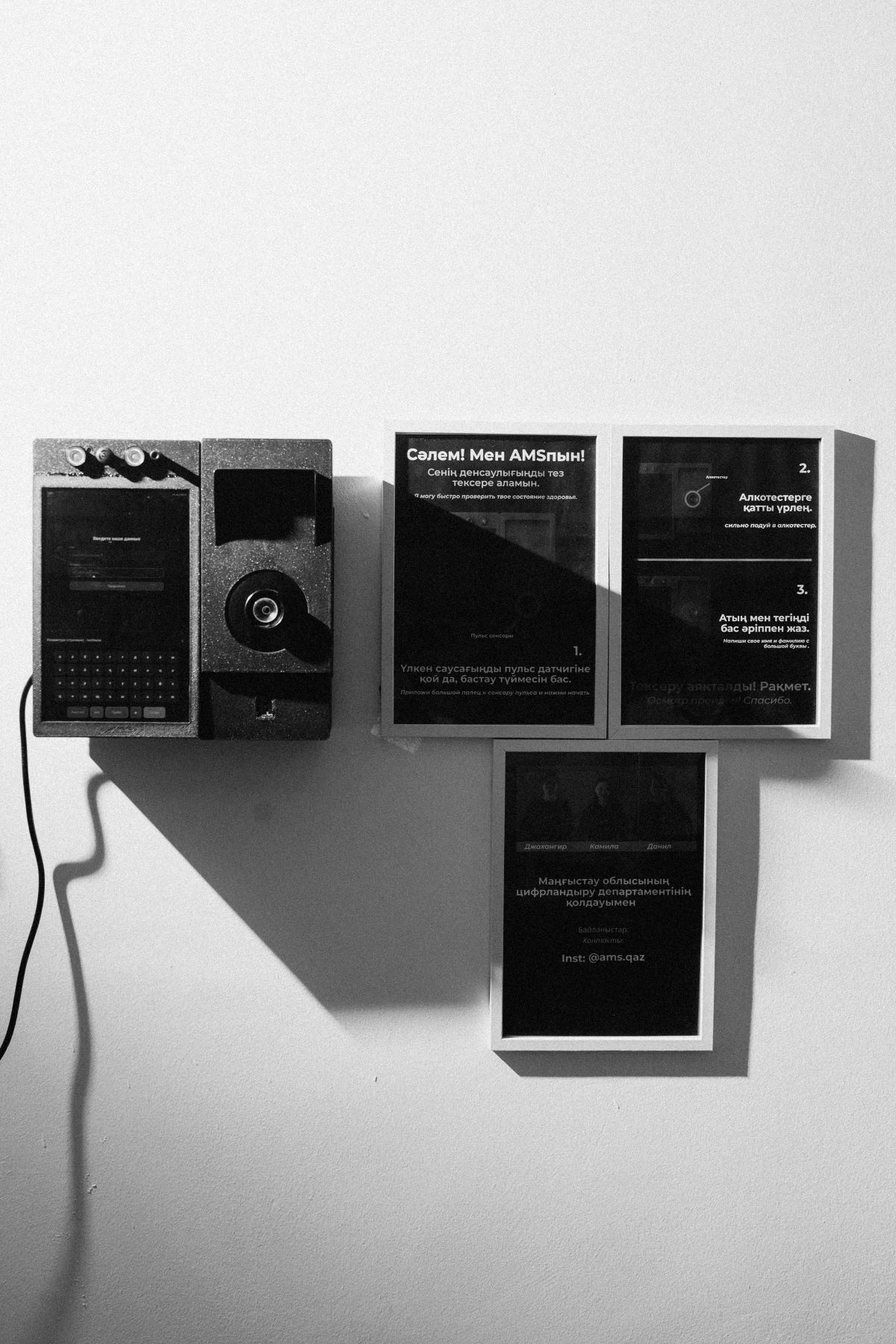
Photo: Aya Tleubay
The tablet measures temperature and heart rate, checks alcohol levels through the built-in breathalyzer, and uses Face ID for identification. If all the indicators are normal, the door opens, the entry time is logged, and working hours are automatically recorded in the timesheet. At the end of the shift, the employee goes through another check, and the accounting department receives the full data for salary calculation.
If alcohol is detected or the temperature is above normal, entry is blocked, and the supervisor, nurse, and director are notified. The worker isn’t allowed on site until a specialist reviews the situation.
— Who is using your solution today?
— Our first client was the ESG Group from Aktau. Its owner, Daniyar Sandybaev, believed in our idea and even helped finance the creation of the prototype. He bought the device almost at net cost and paid in advance. Of course, in the beginning, there were plenty of bugs that we had to fix along the way, but Daniyar was very understanding — and I’m truly grateful for that.
Now we have 10 clients, and our sales volume has been growing by about 100% each year. For example, we’ve implemented our system at the Karaganda Police Department, a company that maintains gas and oil pipelines, and another company of the ESG group.
One unusual case was installing our tablet at the Mangystau Regional Blood Center. Donors are required to go through a medical check, and the front desk process is often slow. We customized the device for their needs: now donors complete an alcohol check and fill out a form directly on the tablet. They answer questions about drug use and enter their personal data. This has sped up the process and reduced the workload for the staff.

— What challenges did you face during your first installations?
— For example, in Zhanaozen, the device was installed deep inside the production zone, and our co-founder, Kamila Kuatova, had to ride there in a truck along with the workers. It was physically very tough for her.
Sometimes the tablet couldn’t withstand the climate conditions. When the temperature hit +40°C and above, it had to be upgraded and replaced. One of the most unpleasant cases was when the system recorded all the indicators correctly, but the door still wouldn’t open. We had to rush over and fix it on the spot.
Once, workers tried to cheat the system by using photos of colleagues to register their entry, even though they weren’t actually there. This trick worked with our first prototype, but later we added an infrared camera that can detect whether there’s a real person in front of it.
«The tablet costs 2.5 million tenge and usually pays off in about a year»
— What does it cost to install, and how fast can a company see it pay off?
— The price of one device ranges from 2.5 to 3.5 million tenge, plus a small maintenance fee. We also tried offering a leasing option, where companies could rent the device long-term, like a car, instead of buying it outright. But companies were completely against it. We didn’t fully understand why. Most likely, we just didn’t explain the value of this model well enough.
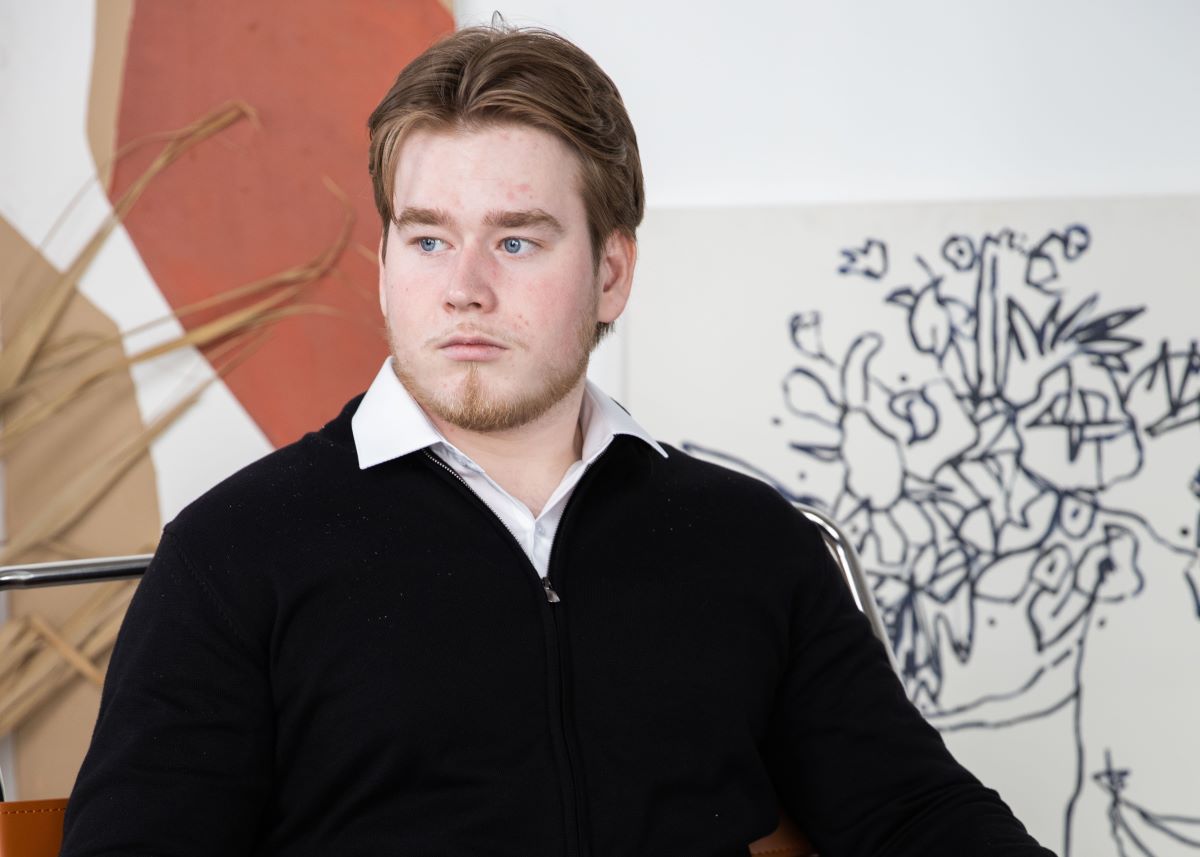
On average, the system pays for itself within a year, since companies spend less on employees who used to perform the tests manually. Now their role is simply to record violations when the system flags signs of alcohol use or flu.
For large enterprises, the impact is even greater. In the past, several medical workers might have been needed on site during a single shift, but now only one specialist is required, with the workload redistributed. Over the course of a year, that translates into millions of tenge saved on salaries alone. On top of that, idle time is reduced and human errors are minimized.
— Beyond cost savings, what other benefits do employers see from using your system?
— It’s become much easier for accounting departments and management to track attendance and ensure safety on site. The system automatically logs working hours and generates timesheets. One noticeable benefit is a drop in late arrivals. When workers know the system is automated and can’t be fooled, discipline naturally improves.
Just in the past year, nearly 4,000 checks have been performed using AMS. The database shows only a few cases involving alcohol, but dozens of workers with elevated body temperatures. We believe this significantly lowers risks in the workplace. A sick employee gets tired faster and is more likely to make mistakes.
— Has the project been personally profitable for you? Do you earn an income from it?
— Now, yes — but that only started in June this year, when I finally felt confident enough to take a salary from the working capital. For a long time, we didn’t have a solid financial model in place. When we launched, we were just 17 and didn’t know much about how to manage finances properly. I handled all the calculations myself, and I often made mistakes. We weren’t operating at a loss, but we were definitely just breaking even.
I should also add that we earned more through another project — developing IT products for companies. Some clients were looking for CRM or ERP systems, while others just needed a website.
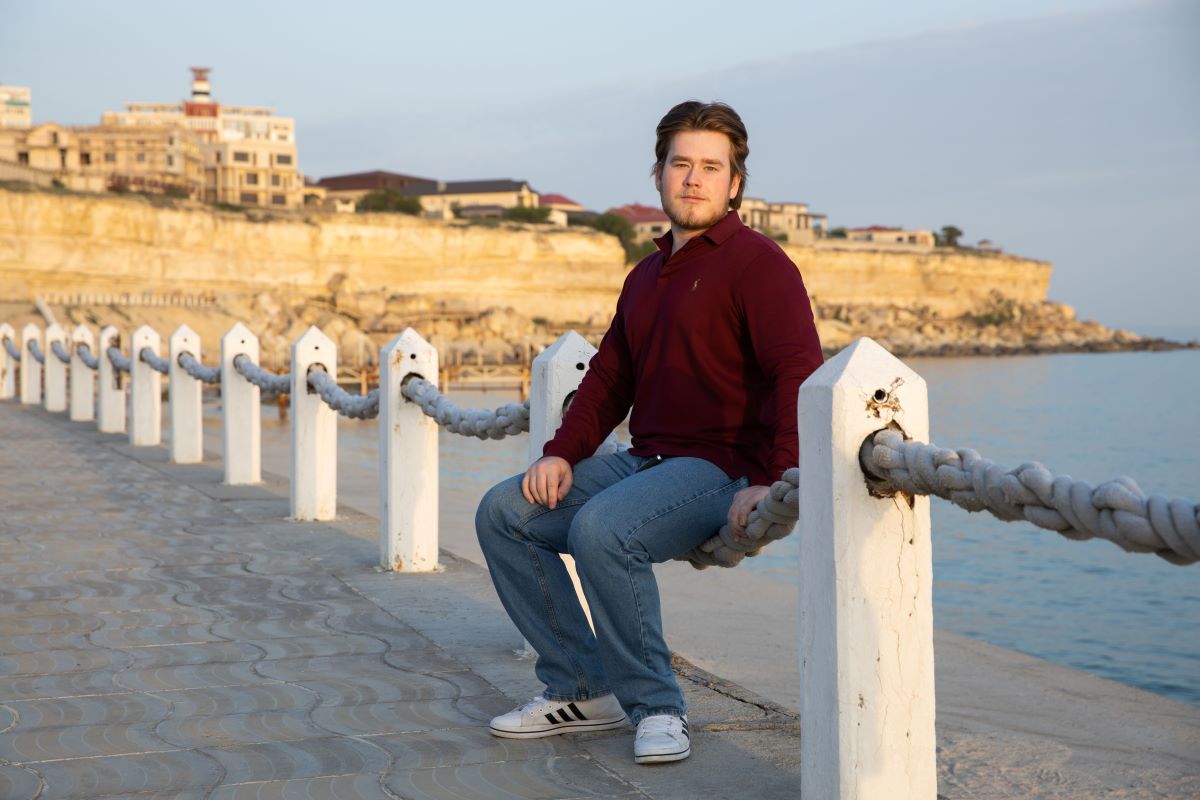
At first, it was just something to fill our free time, but eventually, it became a way to finance the development of our tablets. Part of the income went into building the product, and the rest helped us cover salaries.
«So far, we haven’t come across any direct competitors in our niche in France»
— Outside of Kazakhstan, where do you think your solution has the most potential?
— First of all, in France. On a personal level, I’m studying here, I speak French, and I understand how things work locally. France is a highly industrialized country, but when it comes to digitalization, it actually lags behind Kazakhstan in many areas. That creates a free niche and real demand. Labor laws and workplace challenges are quite similar to what we have at home. Of course, there are some barriers, like company registration, patents, and medical licenses, but those are all solvable.
— Have you tried pitching your solution to any French companies yet?
— Only as part of customer development. Over the past year, I’ve spoken with just seven companies. It’s really hard to move forward here without connectionsю You have to make cold calls, send emails, and search for the right contacts on LinkedIn. In Kazakhstan, it’s much easier. There’s almost always someone who can introduce you to the right person.
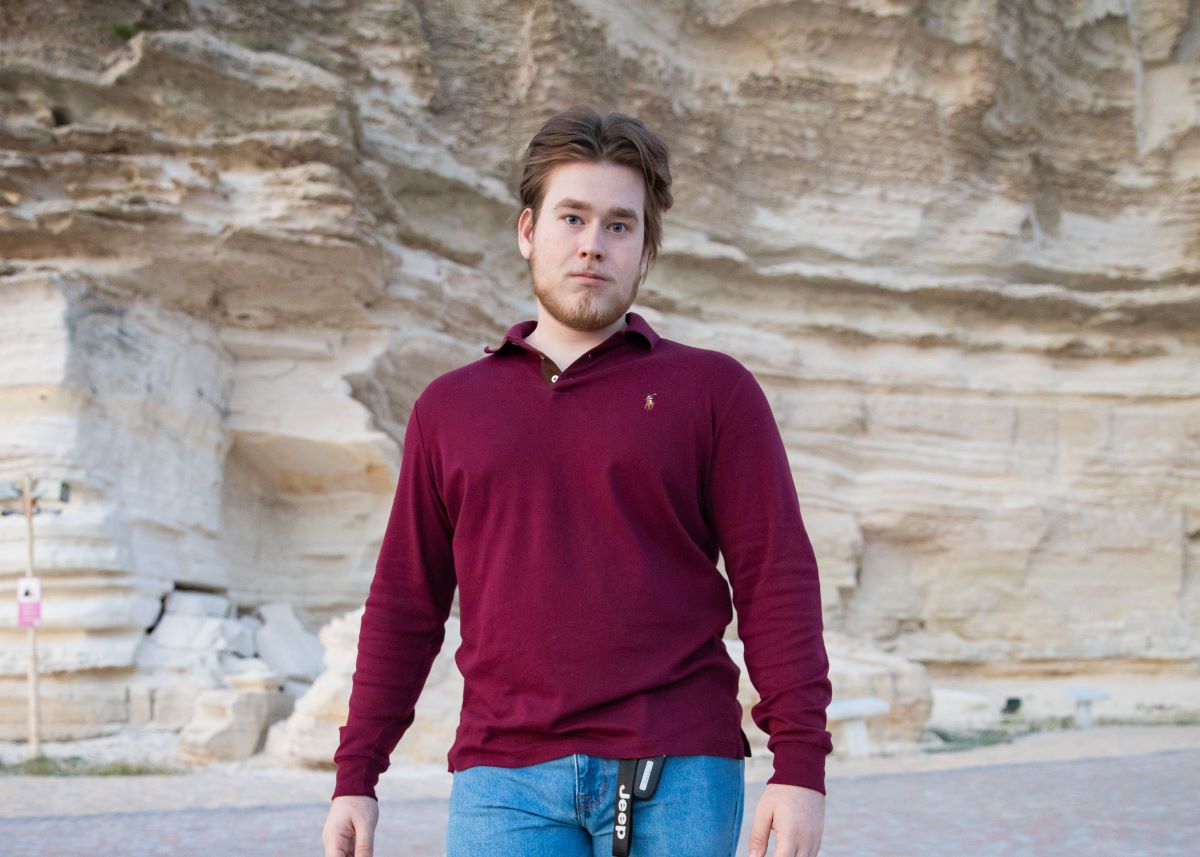
But what’s even more important is that we haven’t come across a single competitor in our niche in France. It may sound surprising, but it’s true. Enterprises are busy automating production processes, bringing in machinery and robots, yet the area of pre-shift medical checkups remains completely untouched.
— What are your plans for the next few years?
— Our main goal is to expand beyond Kazakhstan and establish a strong presence in Europe. To enter the French market, we plan to attract investment. Right now, we’re fine-tuning the product, analyzing the market, and preparing materials for investors. We also understand that funds and angel investors are only willing to support companies with consistent MRR, so we’re rebuilding our model. To achieve this, we’ll be adding software that can be offered on a subscription basis.
We want to develop stronger analytics and data tools, including integration with checkpoint systems, video surveillance, and automated shift management. The idea is to create something like a digital supervisor — an assistant that helps manage processes on construction sites or in factories, while monitoring safety and discipline. I’m sure this is the future of industrial enterprises.
